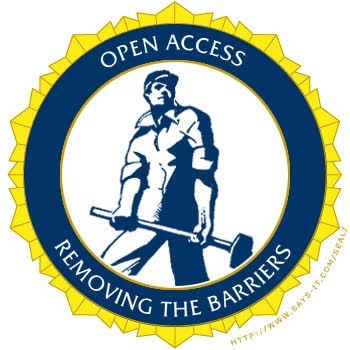UW librarians aren’t only there to offer guidance for research projects. They promote the visibility and accessibility of their own scholarly work, and Sept. 1 marked the beginning of an open access (OA) policy for just that purpose. According to the University Libraries’ mid-month announcement, the new policy makes their newly published research freely available to users: not just students and faculty, but anyone with internet access.
Since the rise of the internet, sharing scholarly work has never been easier. The idea of open access to the content of academic journals, however, is still a developing one.
The Cornell University Library already has arXiv (pronounced like “archive”), a platform that’s been online since the ‘90s and makes mathematic and scientific research papers available to everyone.
In 2004, the Portugal’s University of Minho implemented one of the world’s first university-wide open access mandates. Harvard’s Arts & Sciences faculty followed suit in 2008, becoming among the first in the U.S. to accept OA policies.
OA is not meant to replace traditional journal publications, nor should that be any concern in the future as scientific journals continue to run successfully alongside Cornell’s arXiv.
Weighing prestige against accessibility, some researchers need the name of a reputable journal behind them if they seek tenure or accreditation. The librarians’ policy functions as “opt-out.” UW librarians have an automatic right for their research to be published in ResearchWorks while still retaining their copyrights, but they can also choose to exempt from the policy.
With traditional journals, authors give up their copyrights; published work becomes the property of the journal. The OA policy gives authors leverage in their negotiations with journals because they can keep their rights under it. However, some journals simply refuse to compromise on their mode of income.
Researchers want to share their knowledge with all, but journals make readers pay for access.
With profit in mind, Elizabeth Bedford, a scholarly publishing outreach librarian at Suzzallo Library, explained two kinds of open access, one of which still benefits journals. Bedford confided that the price of academic journal subscriptions increases by seven to 10 percent each year, an increase not consistent with living costs. But Gold Open Access is “flipping the burden.” Authors may pay to publish their research so readers do not have to obtain subscriptions.
However, Gold OA would exclude certain authors. Bedford gave the example of a scientist in a third-world nation who would benefit from not only seeing the latest research, but actually participating in the conversation and, in turn, adding value of his own. A researcher lacking funds would be excluded under Gold OA.
This is where Green OA comes in. A truly open, online space can serve as a hub for self-published articles, theses, and dissertations. The question then becomes how information is updated and verified.
Chelle Batchelor, coordinator of access services for UW Libraries, created a guide for open educational resources and open textbooks and also worked with the Rebus Foundation on the idea that a textbook, once produced, becomes a living object and receives continual contributions from the community.
The idea of multi-person remixing, as Batchelor put it, is one way to ensure quality.
“One thing that’s happening with OER [Open Educational Resources] is open pedagogy, a relationship between teacher and students where the students are involved in editing.” said Batchelor. “There are also emerging ideas of students editing and verifying new content.”
In OA, a current method of accountability combines the peer review by experts that is required of traditional journals with star ratings that are popular online. Bedford termed it the “wisdom of the crowd,” when enough people look at enough textbooks, and keep track of how good they are.
Open access is a concept still undergoing development, but it is expanding.
The UW Faculty Senate, with support from the ASUW Student Senate and the UW Graduate and Professional Student Senate, discusses the idea of an OA policy for all UW faculty.
It’s slow work that began back in 2009, but they want to make the best decision for the school. Bedford is hopeful that a faculty policy mirroring the librarians’ will come about by the end of 2017. In the meantime, the libraries still provide its users with all the journals they can.
“It’s a new idea for people,” Bedford explained. “It’s also that it’s easy to not think about the penalties. If you ask a UW professor how much his favorite journal costs, I guarantee he wouldn’t know. It’s sort of an invisible cost that libraries bear, and are happy to. It’s part of the service we provide.”
Reach reporter Olivia Madewell at news@dailyuw.com. Twitter: @OliviaGMadewell





(0) comments
Welcome to the discussion.
Log In
Keep it Clean. Please avoid obscene, vulgar, lewd, racist or sexually-oriented language.
PLEASE TURN OFF YOUR CAPS LOCK.
Don't Threaten. Threats of harming another person will not be tolerated.
Be Truthful. Don't knowingly lie about anyone or anything.
Be Nice. No racism, sexism or any sort of -ism that is degrading to another person.
Be Proactive. Use the 'Report' link on each comment to let us know of abusive posts.
Share with Us. We'd love to hear eyewitness accounts, the history behind an article.